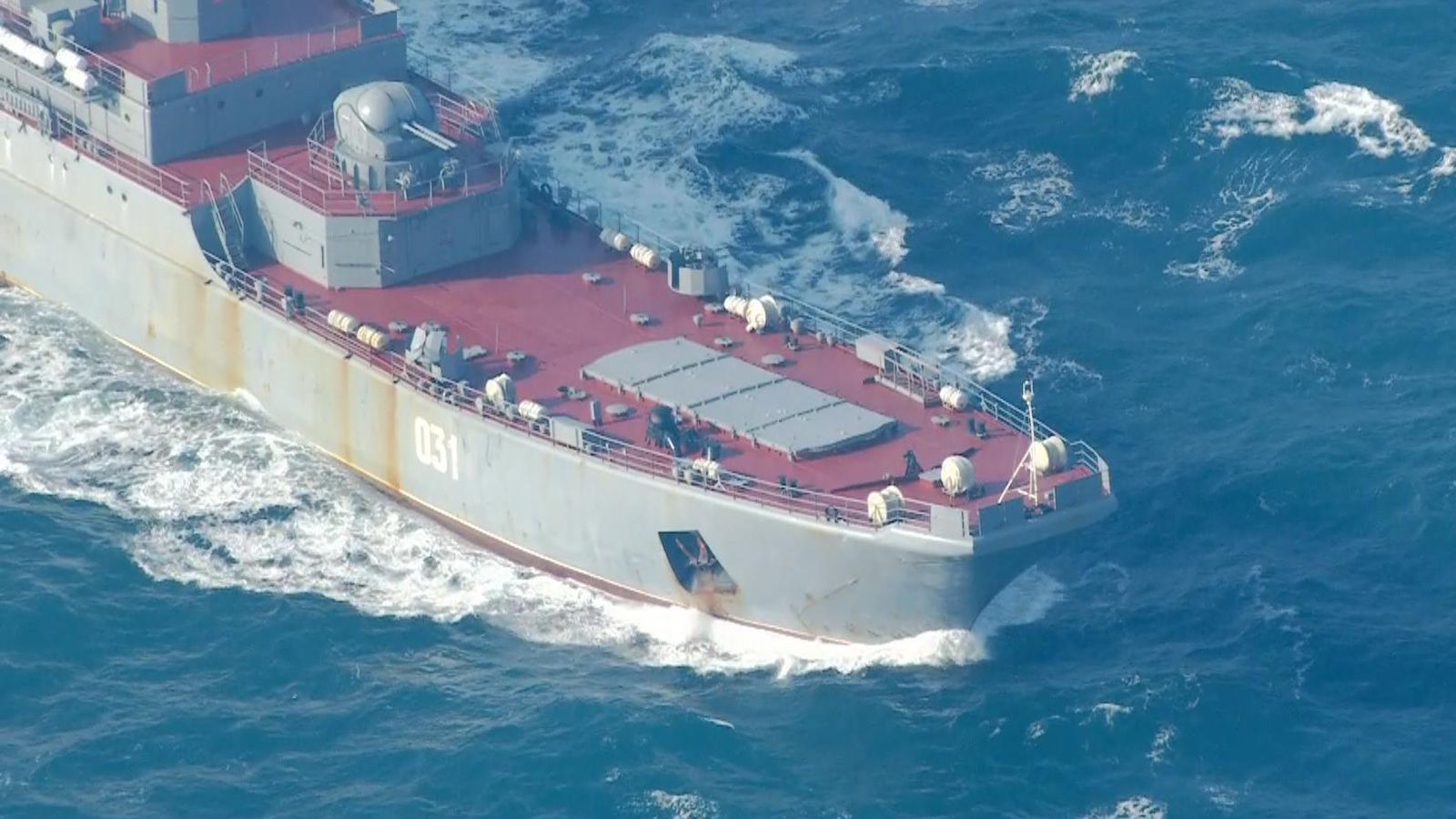U.K News
Russian ships filmed carrying military hardware through the English Channel

Russian Military Ships Spotted in the English Channel Amid Geopolitical Tensions
Introduction to the Situation
Recent footage captured by the Sky News helicopter has revealed Russian ships, identified as Sparta and Sparta 2, traversing the English Channel while carrying military equipment. These vessels, which are owned by Oboronlogistika LLC—a company operating on behalf of the Russian Ministry of Defence—were observed transporting equipment from Syria. The Syrian naval base, once a strategic outpost for Russia in the Mediterranean, was shuttered following the fall of dictator Bashar al-Assad. This development has sparked renewed concerns about Russia’s military movements and the broader geopolitical implications of its actions.
The Ships and Their Journey
The Sparta and Sparta 2 are both sanctioned by the U.S. government, a designation imposed in 2022. According to data from Marine Traffic, the ships entered the English Channel on February 13 at approximately 9:30 AM. Their journey through the waterway has been closely monitored by British authorities, with the Royal Fleet Auxiliary (RFA) vessel Tideforce shadowing the Russian ships since February 12. The presence of a British naval vessel underscores the heightened vigilance with which Western nations are tracking Russian military activities.
The Russian Naval Escort
Accompanying the Sparta and Sparta 2 on their journey is the Russian Naval ship RFS Aleksandr Otrakovskiy, a Ropucha-class vessel designed for amphibious operations. Equipped for beach landings, this ship is a key asset in Russia’s military arsenal. Interestingly, the Aleksandr Otrakovskiy had not been broadcasting its location, making its presence in the region less apparent until Sky News captured footage of the vessel. The escort of the cargo ships by a heavily armed naval vessel suggests that Russia is taking measures to protect its assets during this critical phase of geopolitical instability.
The Fall of Syria’s Tartus Naval Base
The closure of Russia’s naval base in Tartus, Syria, marks a significant loss for Moscow’s military presence in the Mediterranean. Established by the Soviet Union in the 1970s and modernized in 2012, the Tartus base served as a vital outpost for refueling, repairs, and strategic operations. However, following the fall of Bashar al-Assad’s regime, Russian forces were forced to evacuate the base hurriedly. Satellite imagery from the time reveals large quantities of military equipment and vehicles assembled on the pier, awaiting transport. The abrupt withdrawal highlights the chaos and urgency with which Russian forces departed Syria.
The Significance of the Evacuation
The evacuation of the Tartus base is emblematic of Russia’s broader struggles in maintaining its global military influence. The loss of this strategic outpost not only limits Russia’s ability to project power in the Mediterranean but also underscores the vulnerabilities of its overseas operations. The hurried nature of the withdrawal, as seen in the satellite imagery, suggests that Russian forces were unprepared for the rapid collapse of the Assad regime. This has left Moscow scrambling to secure its remaining assets and adapt to the shifting geopolitical landscape.
Implications for Global Security and Geopolitics
The movement of Russian military equipment through the English Channel has raised alarms among Western nations, particularly given the escalation of tensions between Russia and the West. The presence of British naval vessels shadowing the Russian ships reflects the heightened state of vigilance and the potential for miscalculations in such a charged environment. As Russia seeks to reposition its military assets in the wake of the Syrian withdrawal, the international community will continue to monitor its actions closely. The situation serves as a stark reminder of the interconnected nature of global security and the enduring impact of conflict on the geopolitical stage.